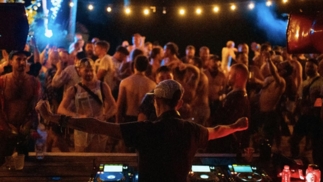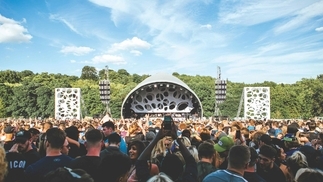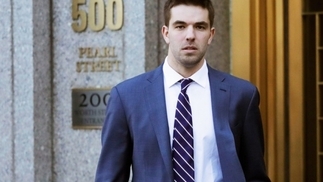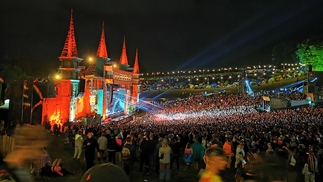The State of Festivals in Malaysia Today
Is this the end of the road?
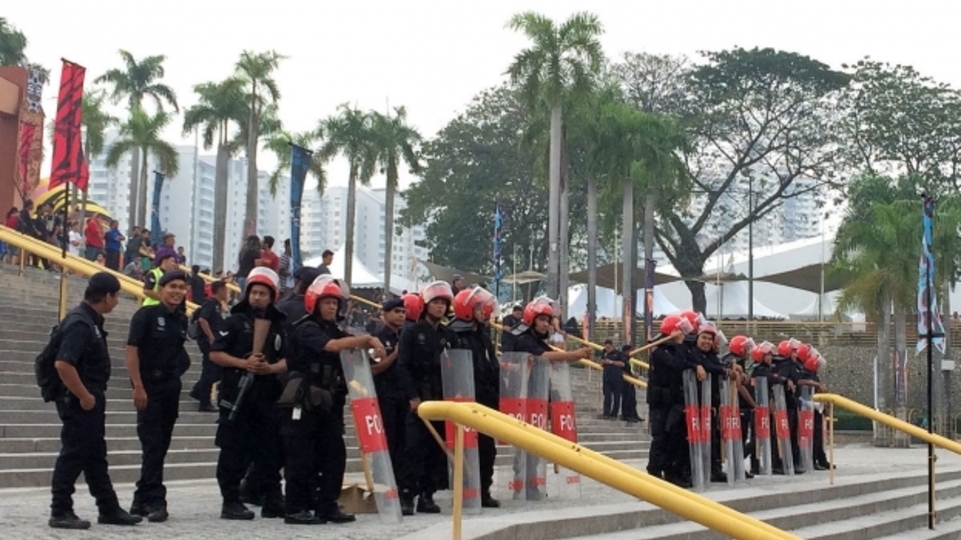
Pre-2014, Malaysia was one of the hottest places in South East Asia for music events. Boasting a culturally diverse nation with a very healthy and vibrant nightlife, Malaysia hosted a number of successful, high-profile events such as Heineken’s Thirst, the Rainforest World Music Festival, and Future Music Festival Asia. These annual events drew in tens of thousands of music-lovers from all corners of the world to celebrate life with the power of music. International superstar acts such as Afrojack, David Guetta, Avicii, Tiesto, and Calvin Harris often graced the country with their presence, bringing fresh music and breathing new life into a then-hip-hop-dominated scene.
The economic impact of music events is astounding:
· International event expenditure isn’t limited to the events; millions in revenue is reaped from various industries, on things like airline tickets, hotel stays, food, drinks, and sightseeing outside the event.
· In 2012, international events for the year reportedly brought in RM916mil, with the figure increasing by 21% in 2013.
· According to the organizers, Future Music Festival Asia 2013 brought in an estimated 15,000 tourists and RM52.5mil in tourist expenditure, and was estimated to bring in RM112.6mil in its 2014 showing.
All this stopped when FMFA2014 was shut down on Day 3 of the festival, following reports of 6 deaths on Day 2. Labelled a “typical knee-jerk reaction” by Sepang International Circuit CEO Datuk Razlan Razali, the cancellation was both sudden and very poorly received.
The immediate consequences were as follows:
Thousands of confused festival-goers faced police cordons formed at the entrances and in the grounds of Bukit Jalil Stadium, denying entry into an event that – as far as they knew – was supposed to go on. Once the official cancellation notice was posted on FMFA’s Facebook page, “Disappointed” didn’t even begin to describe the public outrage that poured into social media outlets. Thousands of tourists, who wasted time and money on flights and accommodations, complained clamorously about the cancellation.
More than 20 international artists – including the likes of Macklemore, Knife Party,
Pharrell, Porter Robinson and Eric Prydz, and double the number of local acts, were
forced to twiddle their thumbs as police cordoned off the venue. While the artists were
still paid for their time, the loss of exposure for local artists will have significant impact on the Malaysian music industry.
And of course the organizers were hit badly by the cancellation. The total estimated cost
of the cancellation numbered around RM14mil, with an unquantifiable loss of reputation (in the eyes of the customer) and a waste of efforts in producing the event.
The long-term effects of the cancellation are harder to pin:
Malaysia took a big dent in its reputation in the eyes of music-lovers. 2014 was Visit Malaysia Year, with dozens of events scattered over the months, to bring in a huge number of tourists. All these events were subsequently cancelled due to pressure from the government, which consequently led to a loss in tourist revenue.
The music scene has become stagnant, with big room electro dominating the club scene. Raves and festivals are the most common way new music is exposed to the masses. Malaysians could have relished a huge variety of music on FMFA Day 3 (and other planned events), with genre-breaking artists like Porter Robinson and Eric Prydz introducing a very different kind of sound to the country.
Fans are also becoming restless as they wait dejectedly for new events to vent pent up energy. Clubs and bars just don’t have the same freeing feel of a festival, where people can truly let loose and feed off on the energy of the thousands around them. There is a distinct lack of faith now whenever new events are announced, as people just don't want to commit for fear of cancellation.
Why it’s tough to execute events in Malaysia:
8 months after the tragic cancellation of FMFA 2014, Livescape Asia announced that the Festival would be moving house to Singapore. The announcement did not surprise many, but there was plenty of disappointment raging on social media. Keyboard warriors were quick to place blame, once again, on the shoulders of Livescape Asia and the people involved in the March incident.
According to Livescape Asia, Singapore was chosen because it was the most sensible choice.
In an enlightening article written by Linawati Adnan of Astro Awani (“Why Malaysia, are you still not ready for international music festivals?”), we learn that the real culprit behind the drought of events is actually PUSPAL, the Malaysian governmental department of permits for events. (Excerpts from the article follow)
“After three years organising one of Asia’s biggest events in Malaysia, we realised that Singapore is a better place to be with world-class infrastructure and excellent support
system. It is a very progressive country and we all know that Singapore is a country of rules and this is very good for event organisers like us - where rules, regulations and policies are clear cut. They (Singapore) have rules for everything. But, this is not so for Malaysia. The rules in Malaysia can be vague and current policies in Malaysia do not protect the event organisers. This is not so in Singapore. We are protected," – Iqbal Ameer, Group CEO of Livescape Asia (sourced from Awani)
Event producer and renowned Malaysian music personality Jennifer Thompson had this to say about PUSPAL’s archaic and complicated approval process:
“When you go to PUSPAL (Central Agency for Application for Filming and Performance by Foreign Artistes) to apply for permit, aside from the ones you read on the guidelines, there are a lot of unwritten rules. There are more to what is allowed and what is not allowed following to the written guidelines. To an extent, there can be some double standards. For example, it is not 'ok' to bring Beyonce because she is too sexy but it is 'ok' for Mariah Carey.”
Iqbal Ameer also said: “One needs to get all sorts of approval to get the license to bring in international performers. There are the pre-approvals (stage) and separate approvals from all different divisions and departments. There are also challenges in the application process that people on the ground would only understand for example, when submitting an artiste for approval by PUSPAL, organisers are required to handover copies and details of passports, repertoire lists and wardrobes -- all to be evaluated by the authorities. If we want these items, the artistes’ managements will require us to first confirm the act and pay the artist fee in order to get that information. But without these, we won’t be able to even submit the application. Hence, promoters are left with no choice but to risk paying the act upfront first and pray hard that the approval will come through, if it comes through.”
The most messed up part about the approval process? Even if something is approved, PUSPAL can withdraw the approval any time with no consequences, such as what happened with We Love Asia 2014. The event was cancelled just days before Afrojack and Cosmic Gate were scheduled to go on.
The broader picture:
2014 has also shown just how far behind Malaysia is in terms of education on drugs, safe practices and the kind of mentality we should have at big events. In raves and festivals outside Malaysia, strangers often take care of each other, truly embracing the PLUR way of life by looking out for those in trouble or by making sure others are safe. Westerners in particular understand the uses and dangers of illicit substances and take precautions if they consume. The organizers of huge events such as Tomorrowland, Stereosonic, and Electric Daisy Carnival understand that yes, people will take drugs regardless of how tight security is. They implement simple life-saving policies such as free water, chill-out zones, and more relaxed drug policies. The proof is that these events consistently have the lowest incidences of death every year.
Compare all that to what we have here: A hot and humid environment, pricey bottled water,
deadly drug laws and worst of all - people who don’t care. The cancellation and the recent Awani article highlighted a typical Malaysian mindset - One that defines itself through spreading hate by placing blame on others while taking no responsibility. These are the keyboard warriors who spout fiery statements against others without caring to learn about the facts or at least try to hear from a different perspective.
Ignorance is worse than knowing yet doing nothing. Those who consume might not know that there is easily accessible information on the Internet, but there are many more that don’t bother. Just like in the United States, Malaysia’s staunch stance of “drugs are bad, mmkay” is clearly not working. All caution is thrown out the window, the second a trusted friend says “this stuff is good bro”, because who really doesn’t trust their friends?
One step forward:
Changing government policies will be a long and arduous process with very low chances of success. Knowing Malaysia’s political climate, discussions and arguments over what’s useful and what’s not could take decades to end, let alone time for actual change to happen. What we can do is start with ourselves and our close connections.
Simple things like knowing what to do in the event of an emergency, safe practices while partying, and responsible usage of substances are all very common things people learn in other parts of the world. It’s not illegal to know what to do, so look it up! There are dozens of resources such as DanceSafe.org, which advocates responsible partying, or erowid.org, which lists reviews of substances so you know what to avoid.
Festivals and raves are good things that help the young (and some of the old!) release tension, forget their daily stresses, and hear new music in a free environment. To cancel or ban events like this because people die, is like banning cars because of accidents. We just need to make it safer through our own efforts.
